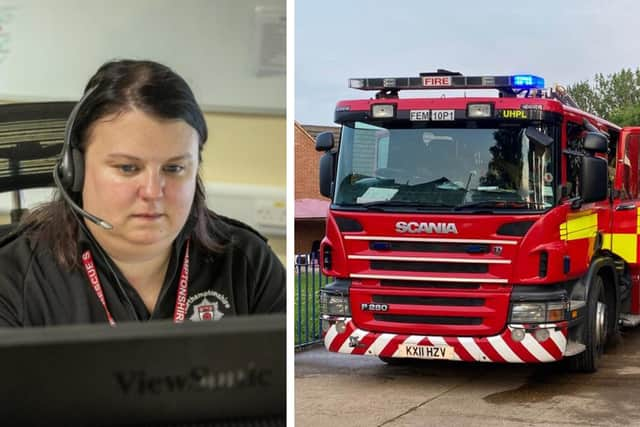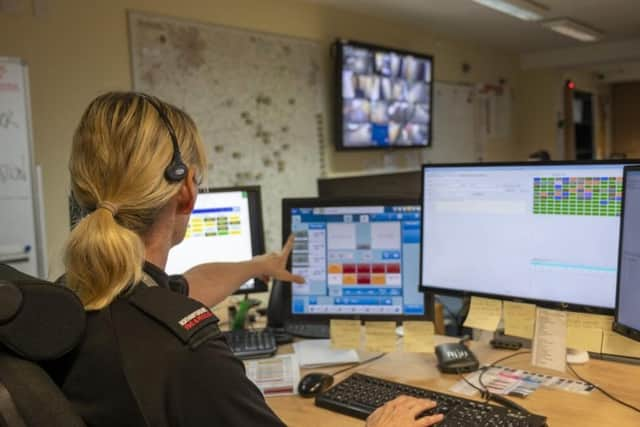Salute to teams who make sure 10,000 fires, crashes, rescues and floods a year are dealt with in Northamptonshire
and live on Freeview channel 276
Firefighters attend around 10,000 incidents a year in Northamptonshire but would not get to most of them without a crucial team of 16 who do “a lot more than answer phones”.
The staff based at Fire Control next door to Daventry Fire Station are split into four ‘watches’ – red, green, blue and white — same as the firefighting crews.
Advertisement
Hide AdAdvertisement
Hide AdStation manager Scott Hirons said: “The control room is the cog for the Fire Service as we wouldn’t turn out to any incidents without them.


“It’s a lot more than answering the phones to members of the public.
“They gather all the information which allows us to pinpoint what incident type we will be attending which then allows us to supply the right resources.
“The public will never see them as they are never on the incident ground but they are fundamental to everything we do.
Advertisement
Hide AdAdvertisement
Hide Ad“We are very proud of them, and we cherish everything they do.”


International Control Room Week, which runs until Sunday (October 30) is an opportunity to showcase the teams’ work.
A 999 call leads to the watch on duty allocating appliances, officers and crews from more than 130 different incident types.
These range from house fires to road traffic collisions, animal rescues or floods.
Advertisement
Hide AdAdvertisement
Hide AdThey will also gather information from caller up and offer any lifesaving advice and guidance — so a cool head is needed to deal with potential witnesses to distressing scenes.
Control room staff are effectively incident commanders until an engine, or an officer, arrives. They will then support until the end by logging decisions, relaying information and essentially connecting everyone attending the incident together.
Blue watch member Nicky Evans said: “I enjoy working for the local service and working on behalf of the community – it gives you a real sense of job satisfaction knowing that you have helped someone.”
The Northamptonshire control room team partners with Warwickshire so that one acts as back-up for the other if they become innundated with calls.
Advertisement
Hide AdAdvertisement
Hide AdDuring the summer’s heatwave they also took calls from as far away as London as part of Operation Willow Beck — redistributing national 999 calls into control rooms across the country during times of significant demand.
To put this into context, in the week commencing August 7 the Control Room took 802 calls and assigned crews to 328 different incidents. That compares to 248 calls and 204 incidents in the same week 12 months earlier in 2021.
Their hard work and tenacity earned a commendation to the whole department from the now former Chief Fire Officer, Darren Dovey, at the recent annual awards.
Station manager Hirons added: “We took a record number of calls and it did feel non-stop for a long period of time.
Advertisement
Hide AdAdvertisement
Hide Ad“But the control room team were absolutely amazing and I can’t praise all the staff here enough. They were overwhelmed but they decided to work extra hours instead of going home — and we didn’t ask them to do that.
“They did it because they are proud of what they do and wanted to support their colleagues.”

